The Intel Core i9-9900K at 95W: Fixing The Power for SFF
by Ian Cutress on November 29, 2018 8:00 AM ESTTest Bed and Setup
As per our processor testing policy, we take a premium category motherboard suitable for the socket, and equip the system with a suitable amount of memory running at the manufacturer's maximum supported frequency. This is also typically run at JEDEC subtimings where possible. It is noted that some users are not keen on this policy, stating that sometimes the maximum supported frequency is quite low, or faster memory is available at a similar price, or that the JEDEC speeds can be prohibitive for performance. While these comments make sense, ultimately very few users apply memory profiles (either XMP or other) as they require interaction with the BIOS, and most users will fall back on JEDEC supported speeds - this includes home users as well as industry who might want to shave off a cent or two from the cost or stay within the margins set by the manufacturer. Where possible, we will extend out testing to include faster memory modules either at the same time as the review or a later date.
| Test Setup | |||||
| Intel 9th Gen | i9-9900K i7-9700K i5-9600K |
ASRock Z370 Gaming i7** |
P1.70 | TRUE Copper |
Crucial Ballistix 4x8GB DDR4-2666 |
| Intel 8th Gen | i7-8086K i7-8700K i5-8600K |
ASRock Z370 Gaming i7 |
P1.70 | TRUE Copper |
Crucial Ballistix 4x8GB DDR4-2666 |
| Intel 7th Gen | i7-7700K i5-7600K |
GIGABYTE X170 ECC Extreme |
F21e | Silverstone* AR10-115XS |
G.Skill RipjawsV 2x16GB DDR4-2400 |
| Intel 6th Gen | i7-6700K i5-6600K |
GIGABYTE X170 ECC Extreme |
F21e | Silverstone* AR10-115XS |
G.Skill RipjawsV 2x16GB DDR4-2133 |
| Intel HEDT | i9-7900X i7-7820X i7-7800X |
ASRock X299 OC Formula |
P1.40 | TRUE Copper |
Crucial Ballistix 4x8GB DDR4-2666 |
| AMD 2000 | R7 2700X R5 2600X R5 2500X |
ASRock X370 Gaming K4 |
P4.80 | Wraith Max* | G.Skill SniperX 2x8 GB DDR4-2933 |
| GPU | Sapphire RX 460 2GB (CPU Tests) MSI GTX 1080 Gaming 8G (Gaming Tests) |
||||
| PSU | Corsair AX860i Corsair AX1200i |
||||
| SSD | Crucial MX200 1TB | ||||
| OS | Windows 10 x64 RS3 1709 Spectre and Meltdown Patched |
||||
| *VRM Supplimented with SST-FHP141-VF 173 CFM fans | |||||
We must thank the following companies for kindly providing hardware for our multiple test beds. Some of this hardware is not in this test bed specifically, but is used in other testing.


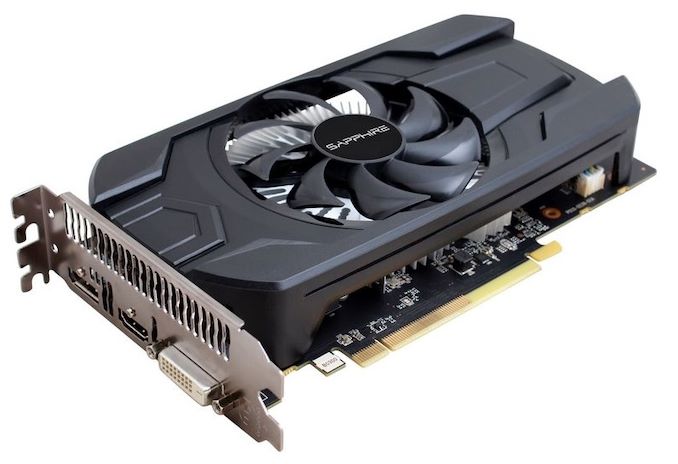
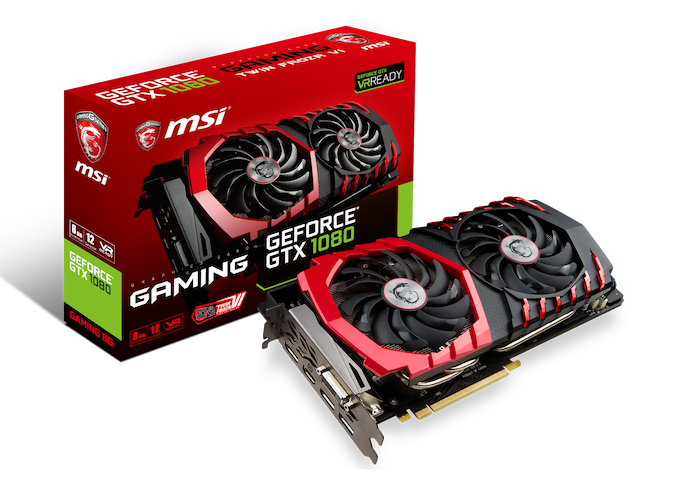
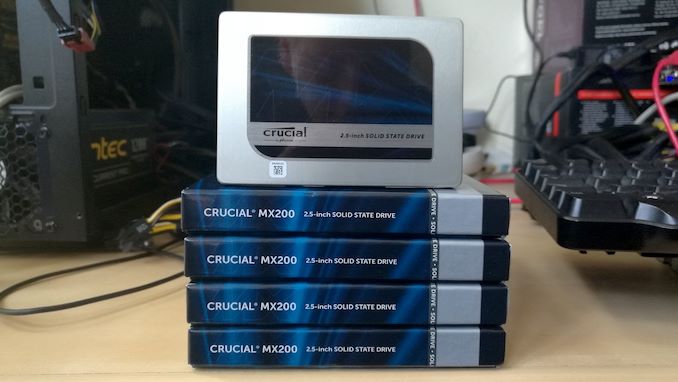
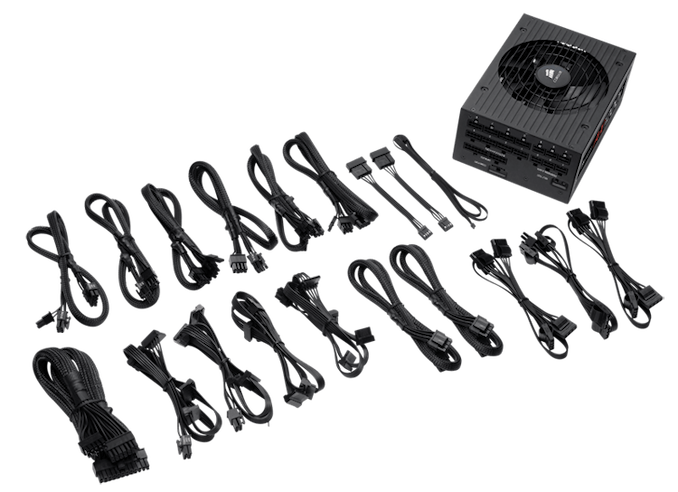
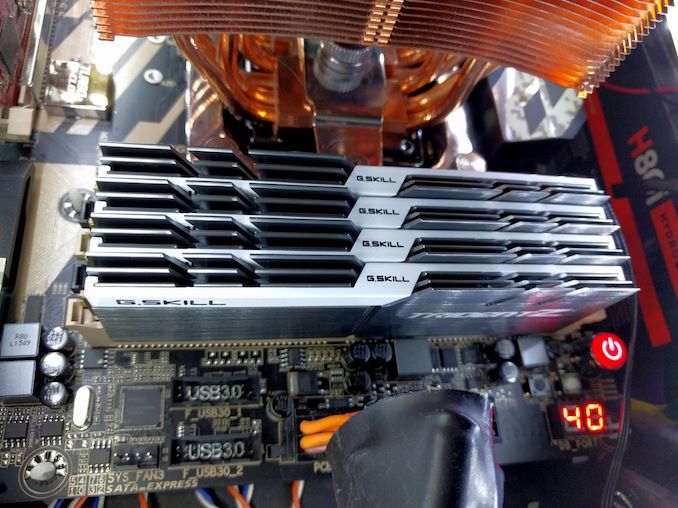
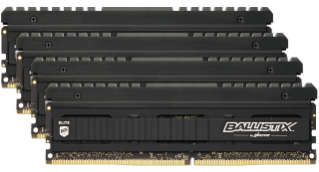
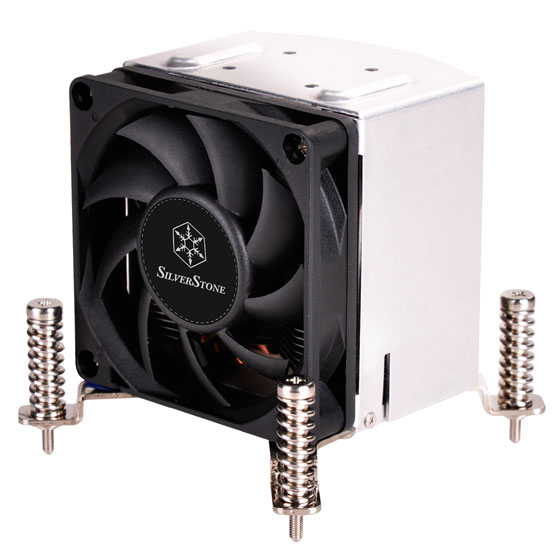
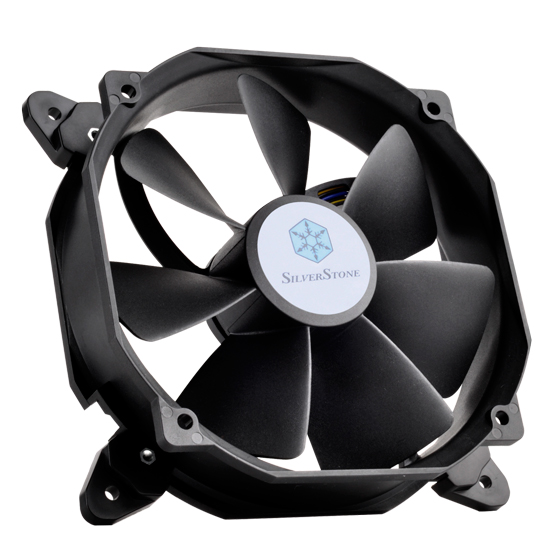








101 Comments
View All Comments
Rukur - Monday, December 3, 2018 - link
9900K comes out of the box with 5Ghz so its going to win on games. The prize it a game stopper but.woggs - Thursday, November 29, 2018 - link
"This rises to 44.2 if the processor is fixed to 95W" but there is no data point on the plot at that spot. A mouse-over labeling of that plot would be very-helpful.romrunning - Thursday, November 29, 2018 - link
I don't understand - the article title says "Fixing the Power for SFF", and yet no motherboards with the form factor typically used in SFF systems were actually tested. The motherboards listed were all ATX; no mini-ITX or even micro-STX boards were used.Why not? Wouldn't this have provided valuable insight for those looking to purchase a SFF system, custom or DIY, to see which mfgs cap the TDP usage or let it go full range?
The author said he tested a MSI Vortex G3 small form factor desktop last year. Well, why not get some comments from ASRock, Gigabyte, ASUS, and MSI as to whether it's standard practice for them to limit CPUs to a specific power limit in their BIOS for those SFF boards.
Fro example, I'd love to know if that sweet-looking ASRock DeskMini GTX Z390 that was recently reviewed can take the i9-9900k rated at 95W to the full "unlimited" power settings. I can put 450-600W SFX/SFX-L PSUs into a SFF system, so I'd like to know if I can get the full performance out of the CPU or if the mfg locks the power draw in the BIOS.
SaturnusDK - Thursday, November 29, 2018 - link
Why is this article, and Anandtech in general, using 1000 unit OEM prices for Intel products which are typically 15-20% less than the lowest retail price you can find. But use the highest you can find retail prices for AMD products? It seems like Anandtech is deliberate trying to make people think Intel products have any value when the reality is that they don't.Rezurecta - Thursday, November 29, 2018 - link
Good re-review. Although, Ian doesn't seem to want to call Intel out. This is OBVIOUSLY something initiated by Intel. If the 9900k were to run in spec it would be slower than the 2700x in a LOT of benchmarks. Intel couldn't have that for such a massive hot monolithic die. That's why all the shady sponsored benchmarks and having the processor way out of spec.It's obvious Intel is hurting. Let's hope this brings about a competitive landscape again.
kernel-panic - Thursday, November 29, 2018 - link
it would be nice if somewhere you let readers know what TDP, PL1 and PL2 mean. I enjoy this kind of articles but I'm not related with the terminology.Icehawk - Thursday, November 29, 2018 - link
It's in the (by now) linked article at the very beginningMr Perfect - Thursday, November 29, 2018 - link
How do motherboards treat the non-k versions of these CPUs? When I built my mITX machine, I bought the non-K processor since there wouldn't be any overclocking going on. Just how locked is a locked CPU? Technically, this could be considered turboing ratehr then overclocking and could be applied to the non-Ks.Targon - Sunday, December 2, 2018 - link
It is possible that Intel won't release a non-k version of these chips, just because there won't be a significant enough performance benefit vs. the AMD 2700X if the chips were not being pushed to their absolute limit.stux - Thursday, November 29, 2018 - link
An interesting point that you make is that a 9900K constrained to 95W performs like an unconstrained 9900K for single threaded loads and an unconstrained 9700K for multithreaded loads.The 9700K has half the threads, so that is an interesting claim, and I think the key is how does the 9700K perform when constrained to 95W.
Hyperthreading is supposed to be a big win to perf/W, thus I’d expect 9900K at 95W to be more efficient than the 9700K for the same perf, which is a definitive win too.
How does the 9700K at 95W perform in the multi threaded benchmarks?